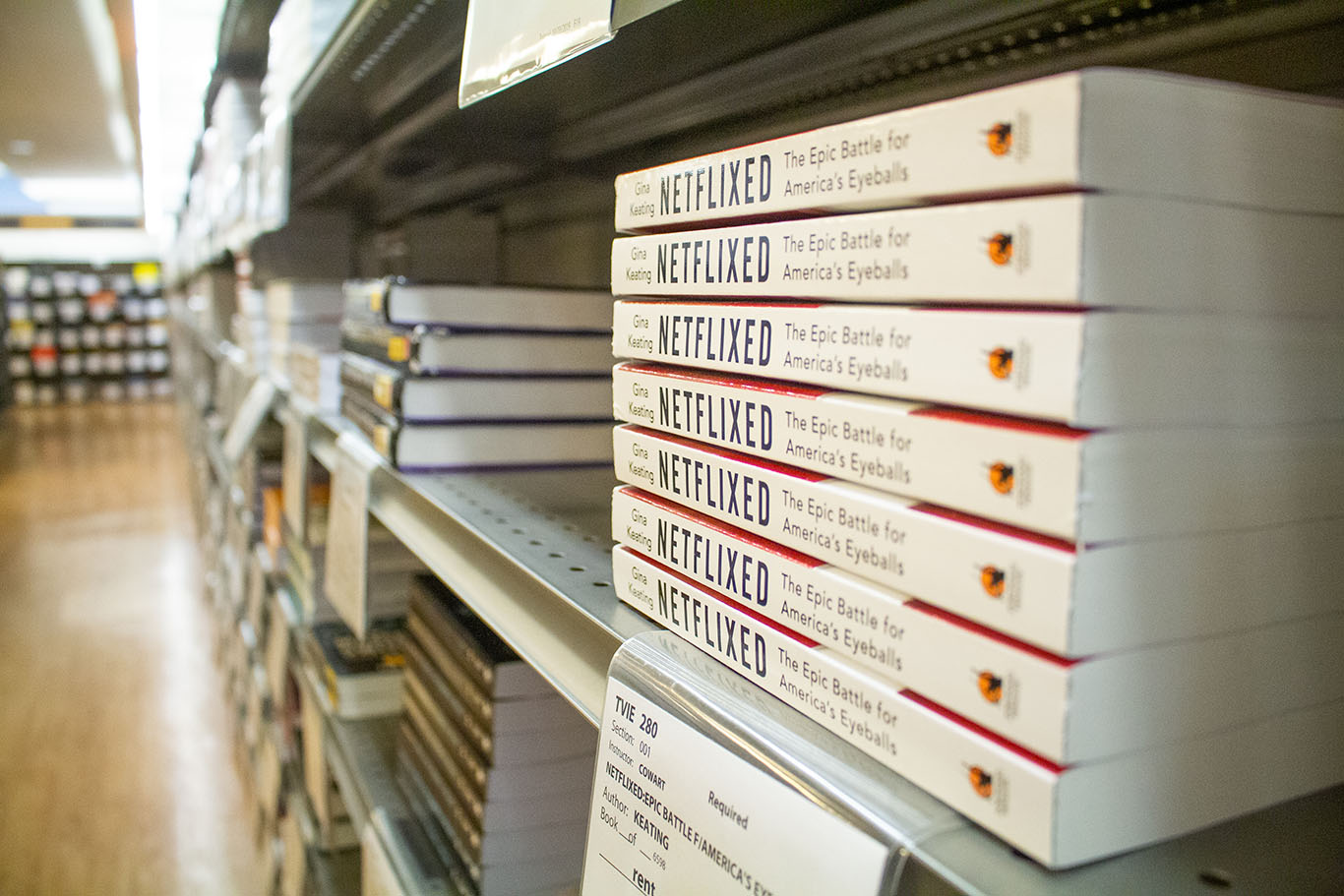
The cost of purchasing books for classes from the Barnes & Noble bookstore is something that I think every college student has been nearly floored by at least once.
Thankfully, I am at the point in my college career where I am taking only the last few English courses to finish up my English major, so I don’t have to worry about some of the really expensive and, quite frankly, annoying stuff from past years. But I still remember my first trip to the bookstore very well in my freshman year. The math text book I bought was well over $100, and the access key that was packaged with it was nearly half the price of the book itself.
Now, I’m not trying to say that the books at the bookstore are overpriced, because I don’t know enough about the process of how the people involved in the selling of the books come to determine the prices that they do. For all I know, they could be setting prices that are completely fair based on their calculations and research. However, being that I am still a college student who has to buy these books, I will say that I find the prices to be a bit steep when you consider the consumers to which the books are being sold.
Obviously money has to be made from selling these books — significant money — and I can’t say that I don’t at least understand why the prices are so much higher at the bookstore; we essentially get instant access to whatever book it is that we need. We can inspect the book before we buy or rent it if it’s used, check for any damages, see if there are too many notes in it already and most importantly, make sure that all the pages are in it. However, I start to question if these benefits are really worth the price when my friend tells me that he found the same anthology book on Amazon for $5; meanwhile, at the bookstore it’s $42 to rent a used copy, $75 to rent a new one and $100 to buy a new one just to push the point home.
Thankfully, we as students don’t have to rely solely on the bookstore. A large portion of us get our books either online as e-books or shipped to where we live, but the problem with this is of course the wait time. Sometimes a book can take a whole week to arrive, even though the shipment information said it would only take two or three business days. That may not seem all that major, but what happens when you need the book in two days so you can do the assigned reading material before you have to go to class? Obviously it’s not the end of the world, but it’s an inconvenience — one that could have been avoided by a simple trip to the bookstore to get the book immediately.
Another thing that can be very hit or miss is price matching. In the details section of price matching for the Barnes & Noble bookstore, there’s a small bit of fine print at the bottom that contains what I find to be a rather important piece of information.
“Titles listed on Amazon that are not ‘rented by’ or ‘sold by’ Amazon are excluded, as are publisher websites and select local competitors.” Essentially, this narrows the potential number of books that can be price matched to just ones that are sold by Amazon. And often times, the cheaper books are listed on Amazon but not sold by it.
And again, I’m not knowledgeable enough about how such a rule is created. I highly doubt that the people coming up with things like this are doing it without a good reason. And while I would love to have the logic behind it explained to me, currently, it just seems like an unnecessary restriction. I can understand wanting to make as much money as possible off selling these textbooks to students, but I don’t think allowing more options for price matching would lead to a significant loss financially.
The bookstore is a fantastic resource, that much I cannot deny as it has been pivotal for acquiring the books that I need for my classes these past three years. That said, I think it can still improve, and everything I’ve brought up in this article hasn’t been to attack the bookstore. I believe that the relationship between students and the bookstore is acceptable for the most part, there are simply some aspects of the transaction that aren’t desirable, but they can be fixed with some communication and understanding from both sides.


